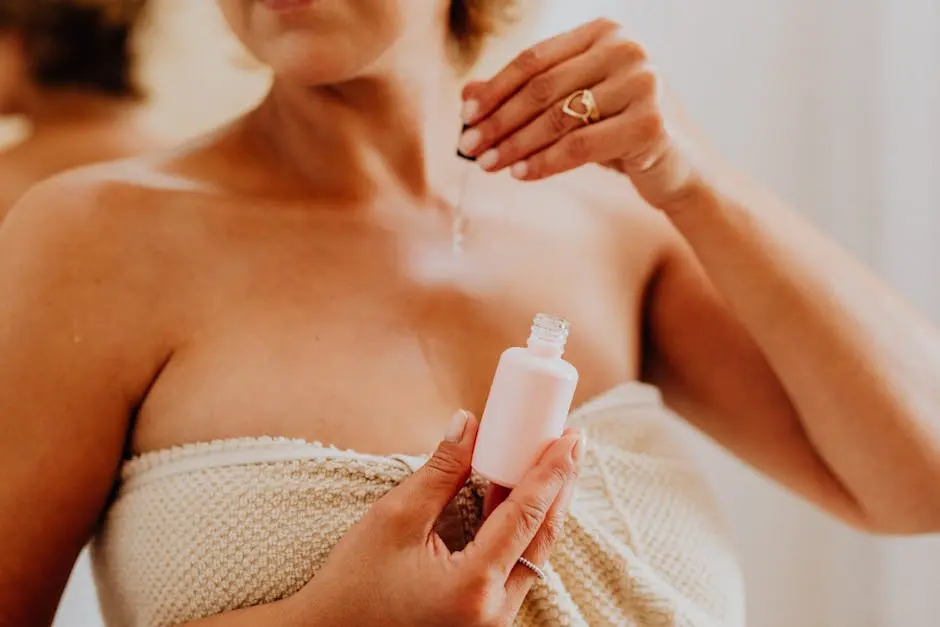In today’s fast-paced world, taking care of your skin can often take a back seat. However, understanding and implementing clinical skincare is essential to maintain that youthful glow we all desire. Join me as we explore the critical elements of clinical skincare that will help you achieve your best skin yet.
Understanding Clinical Skincare
Clinical skincare involves treatments and products that go beyond basic skincare routines. Let’s delve into the science behind clinical skincare and how it benefits your skin.
When we think about skincare, many of us picture a simple regimen involving a cleanser, a moisturizer, and perhaps SPF. However, clinical skincare goes further. It incorporates specialized treatments, scientific ingredients, and professional recommendations to address specific skin issues such as aging, acne, and hyperpigmentation. By understanding the foundations of clinical skincare, you’re not just taking care of your skin; you’re investing in its long-term health and vitality.
Moreover, the personalization of clinical skincare sets it apart. Each product is often formulated with a targeted issue in mind, providing tailored solutions that can lead to noticeable results over time. This bespoke approach ensures that your skincare routine aligns with your skin’s unique needs, ultimately paving the way for transformation.
Key Ingredients to Look For
A plethora of active ingredients can enhance skin health. We’ll discuss the top ingredients you should be seeking in clinical skincare products.
Understanding clinical skincare ingredients is crucial for anyone serious about improving their complexion. For instance, retinol is often hailed as a gold standard when it comes to anti-aging. This derivative of Vitamin A encourages cell turnover and helps to diminish fine lines and wrinkles. Its ability to regenerate new skin makes it a must-have in your routine, especially as we age.
Another essential ingredient is hyaluronic acid, which acts like a sponge for moisture. It can hold up to 1000 times its weight in water, making it superb for hydrating your skin and maintaining a plump look. Especially if you live in drier climates, incorporating this ingredient can drastically change how your skin feels and looks.
Lastly, don’t overlook vitamin C. The brightening powerhouse not only combats dullness but also helps to protect against environmental stressors. By including these key ingredients, you can ensure that your clinical skincare routine is not just effective but also multifaceted in tackling various skin issues.
Choosing the Right Products for Your Skin Type
Every skin type has its own unique needs. Learn how to match clinical skincare products to your specific skin type and concerns.
Navigating the world of skincare products can feel overwhelming, especially with so many options available. The first step is to identify your skin type: is it oily, dry, combination, or sensitive? Each type has distinct characteristics that dictate the types of ingredients and products that will work best for you. For instance, if you have oily skin, look for products containing salicylic acid, which helps to unclog pores and reduce excess oil production.
Conversely, those with dry skin should focus on hydrating formulas that are rich in emollients and humectants. Products containing ceramides and shea butter can provide a much-needed moisture boost while helping to restore the skin barrier. It’s important to listen to your skin and adjust your routine accordingly. Doing so will not only improve its appearance but also enhance its overall health.
Sensitive skin requires a slightly different approach. Look for products that are fragrance-free and formulated for sensitivity. Ingredients like aloe vera and chamomile can calm irritation while also providing nourishment. The key is trial and error, and never be afraid to consult a professional if you’re uncertain about what products to choose.
The Importance of Professional Treatments
Sometimes over-the-counter products aren’t enough. Discover how professional treatments can enhance your skincare routine and give your skin that extra boost.
While at-home skincare regimes play an important role, professional treatments offer a level of expertise and potency that can catalyze significant improvement. Treatments like facials, chemical peels, and microdermabrasion provide immediate benefits and often produce quicker results than home products. For example, a chemical peel can remove dead skin layers and reveal smoother skin beneath, while also improving the skin’s tone and texture in a single session.
In addition, professional guidance can be invaluable. A dermatologist or licensed aesthetician can analyze your skin’s condition and tailor treatments specifically for you, recommending the best products and routines to maintain the results achieved during treatment. Regular appointments can also keep skin issues at bay—think of it as a partnership in your skincare journey.
Creating a Consistent Skincare Routine
Establishing a routine ensures that your skin gets the needed care it deserves. We’ll talk about how to build a consistent and effective clinical skincare regimen.
A cohesive skincare routine doesn’t have to be complicated; it just needs to be effective. Start with a simple morning and evening regimen that incorporates cleansing, active ingredients, and sun protection. Consider breaking it down into a step-by-step plan that feels manageable. For instance, in the morning, cleanse your skin, apply a Vitamin C serum, and finish with a broad-spectrum SPF. This simple trio can set a solid foundation for your skin’s health.
As your skin adjusts, you can gradually introduce more products, such as toners or treatments for specific issues. The overnight routine is equally crucial—this is when your skin naturally repairs itself with the help of serums and overnight masks. Consistency is key; your skin rewards your diligence over time as it adapts to your regimen.
Staying patient and attentive to your skin’s responses is just as important. If something feels off or doesn’t seem to be working, feel free to tweak your routine. After all, skincare is an ever-evolving journey where you learn more about your skin’s needs as you go.
Embrace Your Skincare Journey
Revitalizing your skin is more than just a trend; it’s about adopting a routine that nourishes and protects it. By incorporating these clinical skincare essentials, you’re well on your way to glowing, healthy skin that radiates confidence. Remember, the journey to skincare excellence is personal, so find what works best for you and embrace it.

